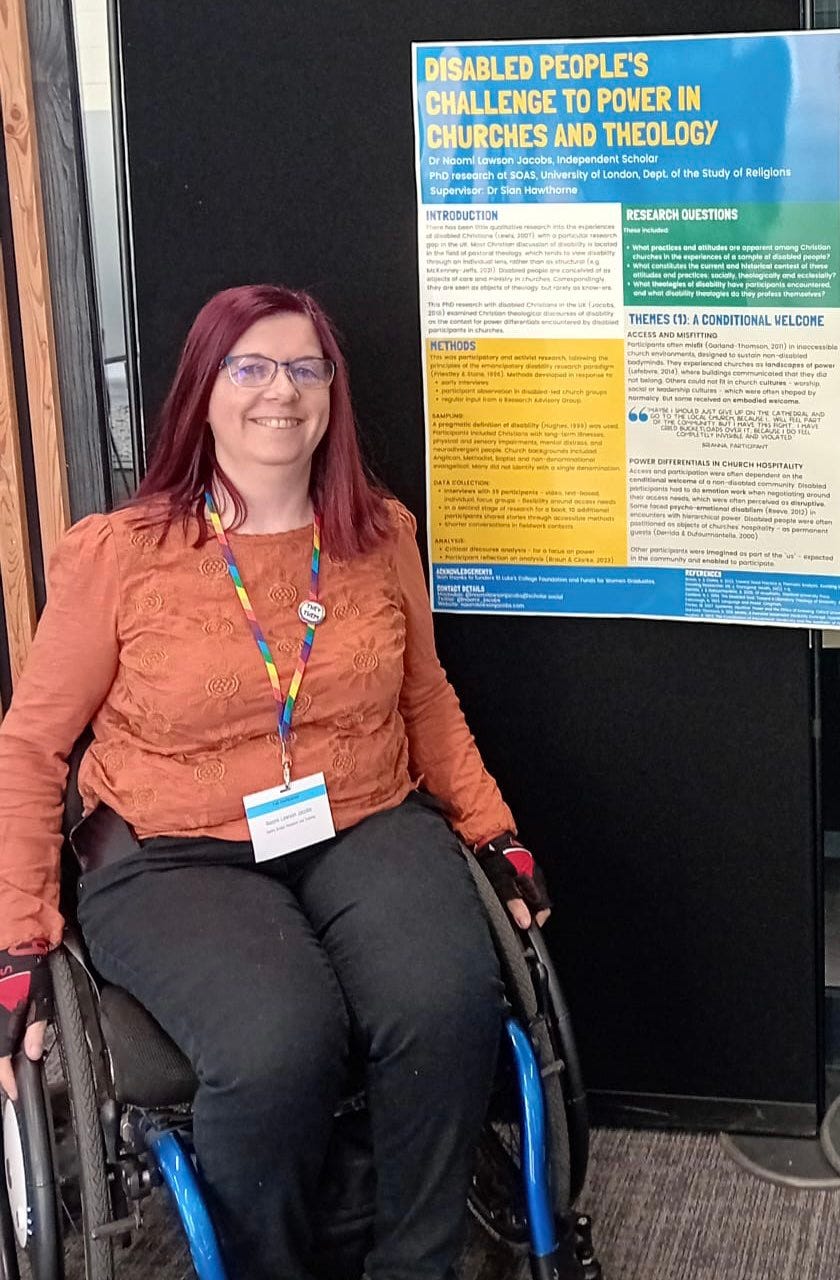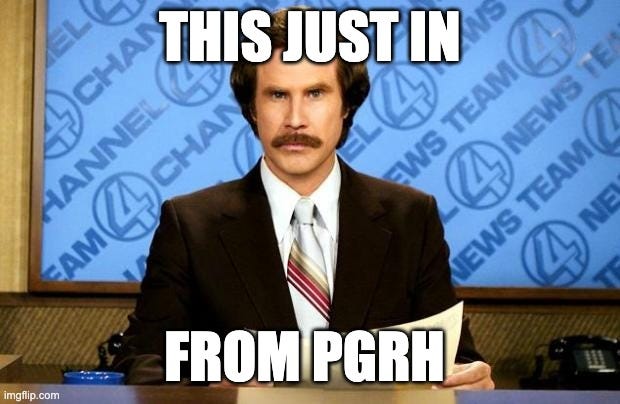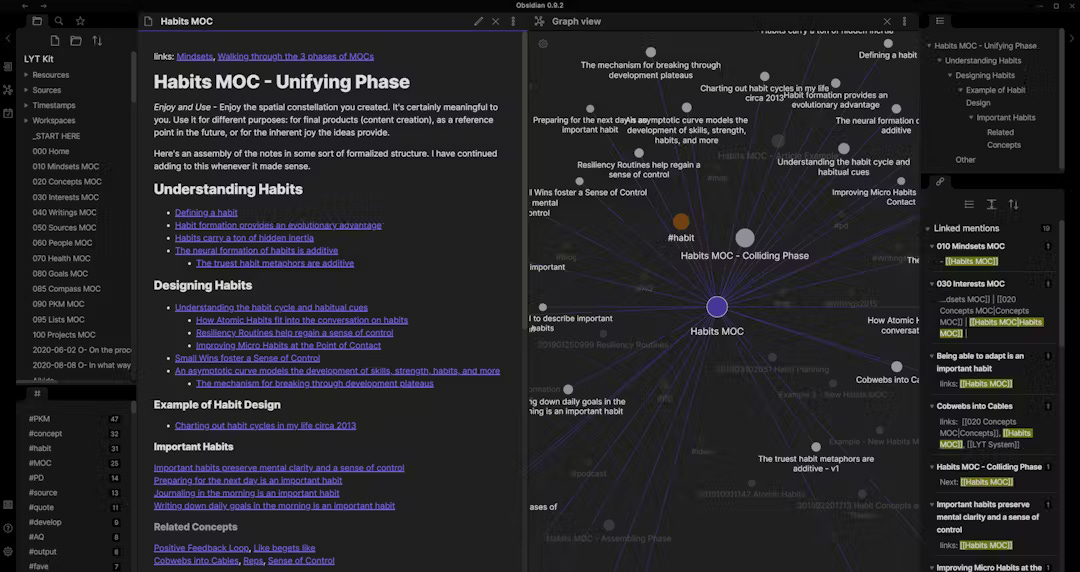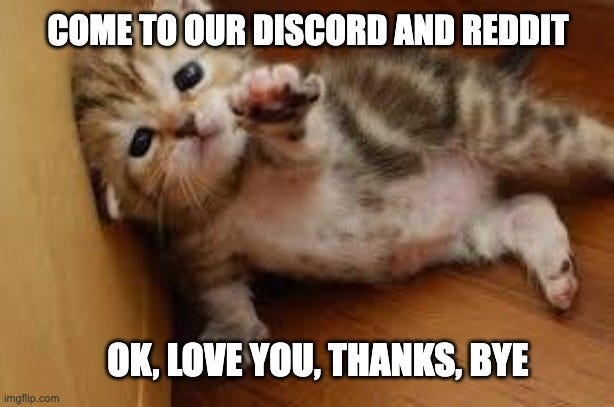Hello friends!
Welcome to another PGRH post. Today we’re looking at being hangry and toxic supervisory relationships. We’re giving a nice introductory video on Obsidian, network updates and much more. Before we do, we’ve got some exciting news!
We’ve reached over 300 members on our Discord community 🥳 We wanted to acknowledge this and say a huge thank you to all of you over there who continue to engage with us and others. It feels like just a few days ago we were celebrating our 50th member. Onwards!
Since we built the PGRH back at the end of 2022, we’ve been getting a lot of contact from undergraduate students seeking a community just like ours. Something exciting this way comes….
Let’s jump in.
Articles of the Week
Remember that Snickers slogan from a few years back? “You’re not you when you’re hungry”? Well, turns out - it’s not just a slogan and maybe your neurons are to blame. Researchers are currently looking at how these insights may be used in treating eating disorders. Some of our members on Discord had been chatting this week about the best way to listen to articles instead of reading them - which reminded us that we should share more audio content. The above article can be listened to or read via the webpage.
The more time we spend on Reddit, the more we’re reading about how more and more PhD students are having to cope with toxic and sometimes abusive supervisors. They say that doing a PhD is one of the hardest things you’ll do in your life, can you imagine doing it under an unsupportive, uninterested supervisor? Well, many are.
In this editorial, Madan (2021) offers an overview of some of the key topics relating to good supervisory relationships on a PhD journey. When a supervisory relationship cannot be described as ‘positive’, Cornér et al (2017) offer burnout as a possible factor. While some researchers continue to study this relationship and how it presents, others have looked at possible frameworks to combat its breakdown. Here, McChesney (2022) argues for a trauma-informed framework in PhD supervision.
Finally, ever see one of those cute, free ‘Little Free Libraries’ (LFL)? Personally, I’ve always thought they were a wonderful, accessible community resource. However, Houghton et al (2022) discuss how LFL may actually perpetuate and reinforce age-old barriers to education and knowledge.
Transparency Note: Dr. Frank Houghton is currently part of my (Kayla) supervision team. The article above has been included for its relevance to grad students internationally and not by request.

Community Spotlight
This week we shine our community spotlight on Naomi Jacobs!
Naomi Jacobs (they/them) is an interdisciplinary independent researcher in religious studies and disability studies. Their PhD (2019) was a participatory study exploring the lived experiences of disabled Christians, leading to a co-written book with a participant. Naomi is contracted for short research projects on disability and/or religious communities. They also continue to collaborate on academic research and writing.
Naomi can often be found in our Discord community channels, guiding new members through our onboarding process. Naomi has contributed an enormous amount of valuable insights around religion, disability and sexuality across our server and has a wonderful ability to steer researchers into areas and concepts that are exciting and often undervalued.
The routes we take into academic research, while personal in terms of the journey, often follow a traditional pathway. Independent research is a road less travelled in traditional academia and because of that, there are very few resources on the topic. Naomi has been kind enough to share some of their experiences in independent research in the past and we were lucky enough to chat with them this week to find out more about the process.
Q1. What part of your academic journey are you at?
I always say that my journey was bound to be a little slower and less direct than some academics’ journeys, as I’m disabled and autistic. I finished my PhD some years ago, and then turned my attention to writing a book aimed at the researched community. I’m now slowly disseminating my research in academic journals and exploring the possibility of future funding and posts. In the meantime, my ‘day job’ on research projects outside of academia is endlessly interesting!
Q.2 What made you join the PGRH and what do you get the most from the community?
Life as an independent scholar can be isolating. I really miss the academic community I was lucky enough to be part of during my PhD studies. I also wanted to share my experience of my PhD with PGR students, from the ‘other side’, since I remember often finding the PhD deeply mystifying! One of the best things about the academic community is how much we all want to help with friendly advice and informal peer mentoring, at every stage of the journey. Online communities like the PGRH give us venues to point each other in the right directions. And, as a terrible procrastinator, I love the PGRH co-working sessions!
Q.3 What would you say is the most enjoyable and most challenging parts of independent research?
As an independent researcher, I’m never bored. One day I might be working on interviews with members of a church community action project; the next, I’m writing a proposal for research with disabled users of public transport. I can also work part time, flexible hours, which makes the work more accessible to me than most university posts. However, I can only be involved in academic research when an employed researcher asks me to collaborate on their project - there’s very little academic funding out there for sole independent researchers. But for me, it’s been a way to build my reputation and carry on disseminating my research. Still, I’m hoping for university-based opportunities in the future, through one route or another!
Q4. If you had the opportunity to study anywhere in the world, where would it be and why?
I’ve always dreamed of working in North America, but I don’t know if it would ever happen, as mobility and health limit the jobs I can apply for. But the world is opening up through digital and hybrid working, so you never know!
Latest from our Community
Here are some brief updates from across the PGRH network 👩💻
Undergraduate Research Hub
We’ve always wanted to cultivate as inclusive a space as possible since developing the PGRH last year. In the beginning, we’d get new members from time to time who were seeking support around their undergrad studies. Lately, this has been happening more and more and we’ve found ourselves having to turn these students away, which always felt wrong.
This week, we’ve launched a brand new server for undergrads! It’s based on our PGRH format and so if you know any undergrads who may be interested, we’d love it if you would share the community with them!
Visit the Undergraduate Research Hub.
Coworking
We’ve got two virtual coworking sessions happening this Thursday (tomorrow). Session A kicks off at 10 am (GMT) and Session B at 3 pm (GMT). Bring your to-do list and join us for some virtual writing/reading company.
Our format: mics off, cameras on (if appropriate) and chat box open for those who wish to say hi!
Join us on Thursday, or drop by our server and get to know our coworking group for informal or impromptu sessions!
Research Resource
Last week we gave a nod to Obsidian. Many of us are using Obsidian not just for our MA/PhD studies but as a knowledge management system. Obsidian is an incredible tool but can be somewhat intimidating. Before we get into the bigger functions of Obsidian for research, here’s a beginner’s tutorial by Linking Your Thinking on YouTube.
(Image from: www.markdownguide.org)
Also, in case you don’t know - JSTOR offers people with education email addresses 100 free articles a month.
Bonus Bits
Postgraduate Research Hub Subreddit: We know that Discord isn’t for everyone and that a lot of PhD students enjoy Reddit’s content format. We’ve got a subreddit over there and will be posting research/science news and resources more often.
We’re trying to grow this space and would love it if you’d come and engage with us over there!
Map of Medicine: Domain of Science run a fantastic channel on YouTube. They create wonderfully illustrated maps of content for specific topics. You may not have much interest in a map of medicine but watching this video won’t be a waste of your time. These videos and indeed the maps themselves are a wonderful example of creative knowledge dissemination, and may spark some creative ideas for your own dissemination techniques!
Queering the Map: This is a fun website that I’ve been coming back to regularly for a few years. Take on the role of a virtual tourist and travel the world reading experiences from the LGBTQ+ community. There are also a lot of gay sharks in the ocean…
See You Next Week
If you like this newsletter, or you’ve gotten some value here - please consider sharing us with a friend or colleague! See you next Wednesday.







